What it’s like to stay in a former uranium mining town in Kyrgyzstan
Min Kush’s only B&B owners are hoping tourism is the key to changing the town’s ailing fortunes
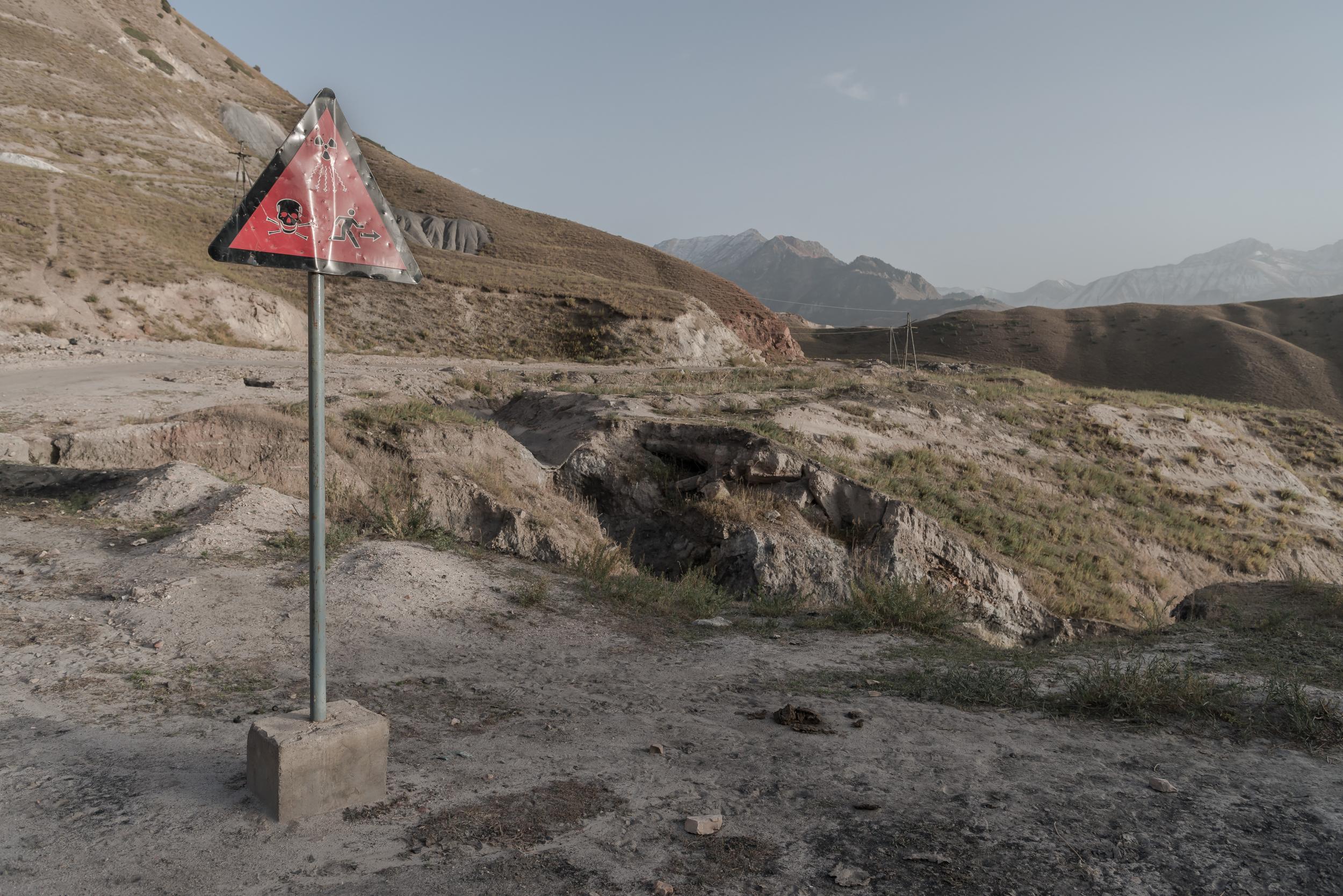
Your support helps us to tell the story
From reproductive rights to climate change to Big Tech, The Independent is on the ground when the story is developing. Whether it's investigating the financials of Elon Musk's pro-Trump PAC or producing our latest documentary, 'The A Word', which shines a light on the American women fighting for reproductive rights, we know how important it is to parse out the facts from the messaging.
At such a critical moment in US history, we need reporters on the ground. Your donation allows us to keep sending journalists to speak to both sides of the story.
The Independent is trusted by Americans across the entire political spectrum. And unlike many other quality news outlets, we choose not to lock Americans out of our reporting and analysis with paywalls. We believe quality journalism should be available to everyone, paid for by those who can afford it.
Your support makes all the difference.There is no signpost, but my driver Azamat knows to turn off the main highway and to take the winding narrow road through the Tian Shan mountains. Our destination for the night is Min Kush, a former Soviet uranium mining town, which my guide book describes as the end of the road in every way.
During Soviet times, uranium was mined here for Russia’s nuclear programme. It was regarded as so important that the Kyrgyz town was ruled directly by Moscow and attracted highly skilled labour from all over the Soviet Union; wages were double the national average and employees were given special privileges and holidays. So secretive was Min Kush during Soviet times that it didn’t appear on any maps and you needed a permit to enter.
The uranium mine was shut down in 1968 and new industries were created, notably a felt tip pen factory. But since the collapse of the Soviet Union in 1991, the town has become a shadow of its former self; factories and apartments stand in ruins and the population has fallen from 20,000 to around 3,000.
It is dusk as we pass a large concrete sign welcoming us to Min Kush. The road is lined with two-storey blue wooden clapboard blocks of flats, many of them boarded up and the others in a state of great disrepair. The place has an eerie feel to it.
We pass a park where a statue of Lenin once stood pride of place in front of the opera house. Today the ground is covered in weeds and the statue has gone along with the music. A small group of men stand drinking vodka by the bus shelter, which is decorated with a mosaic of Lenin’s head.
My driver has heard of a bed and breakfast called Kurkuldai, the only one in the town, and telephoned several hours earlier. I am dreading what I will find but am so grateful for a bed after driving for nine hours. We park outside a crumbling concrete apartment block and call our host. Alec Petrovich comes out to greet us and leads us through a broken door, into the dark stairwell, and up to the first floor.
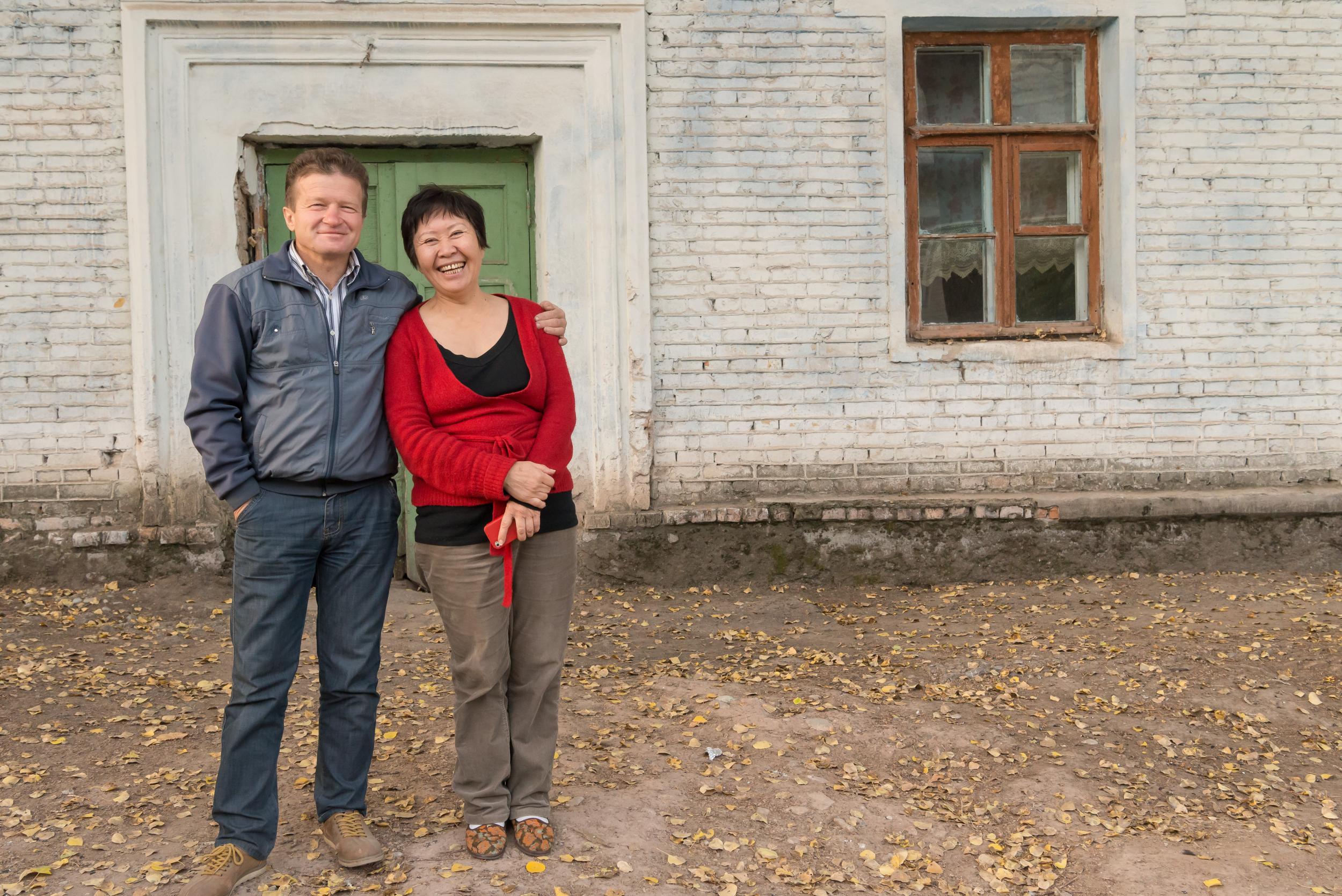
We enter his apartment, and to my great surprise find it newly refurbished, with a large, bright, open-plan kitchen complete with island and appliances that wouldn’t be out of place in a modern city. The bedrooms are tastefully furnished and dishes of nuts and fruits are prepared.
Alec’s wife Gulnara Nogoibaevo has prepared fresh river trout and roasted vegetables for dinner, and Czech crystal glasses are filled with local honey and fresh jams. It is the best food I’ve eaten in Kyrgyzstan.
Gulnara used to work for an international aid agency and speaks good English, and as we eat dinner together I ask her why she and Alec have chosen to make Min Kush their home.
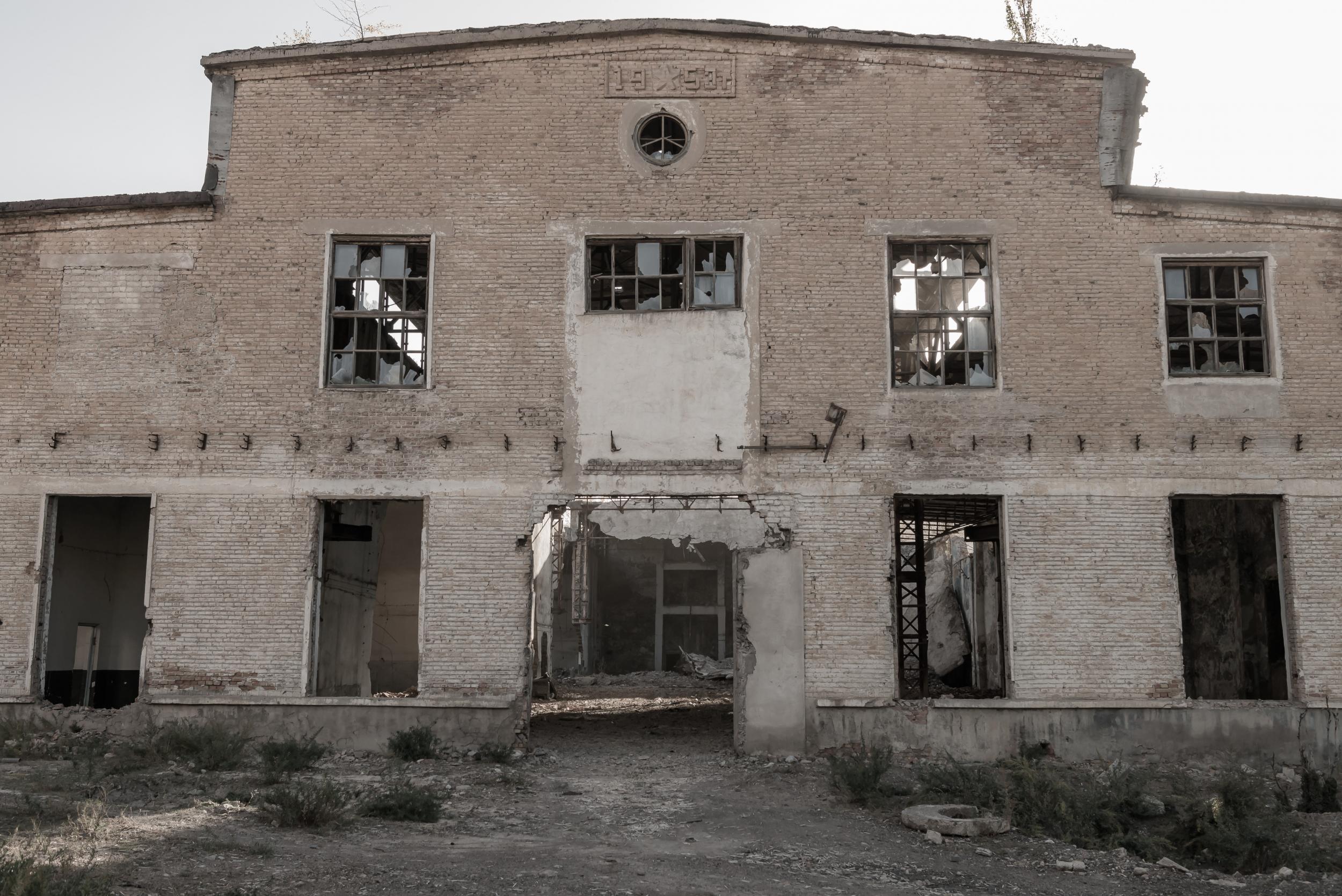
She tells me that Alec was a heart specialist at the local hospital. His father had been a scientist in the town, been born and bred here, and had returned home after his medical training in the capital Bishkek.
After the collapse of communism, his siblings and five children moved away along with most of the population. But Alec loved the mountains and says he felt a duty to his patients not to leave. Gulnara is his second wife, and he persuaded her to marry him and move from Bishkek to Min Kush, which seemed an immense sacrifice on her part.
Despite fears of the radioactivity of the uranium waste buried in the mountains, Alec assures us that cancer is only the third major illness here after heart problems and alcoholism.
The next morning, after a breakfast of crepes and eggs baked with tomatoes, we head out to explore the small town. Children smartly dressed in school uniforms walk to school past the dilapidated locked up buildings, the girls with large bows in their hair reminiscent of Soviet times. Life’s routines continue despite there being little chance of employment here.
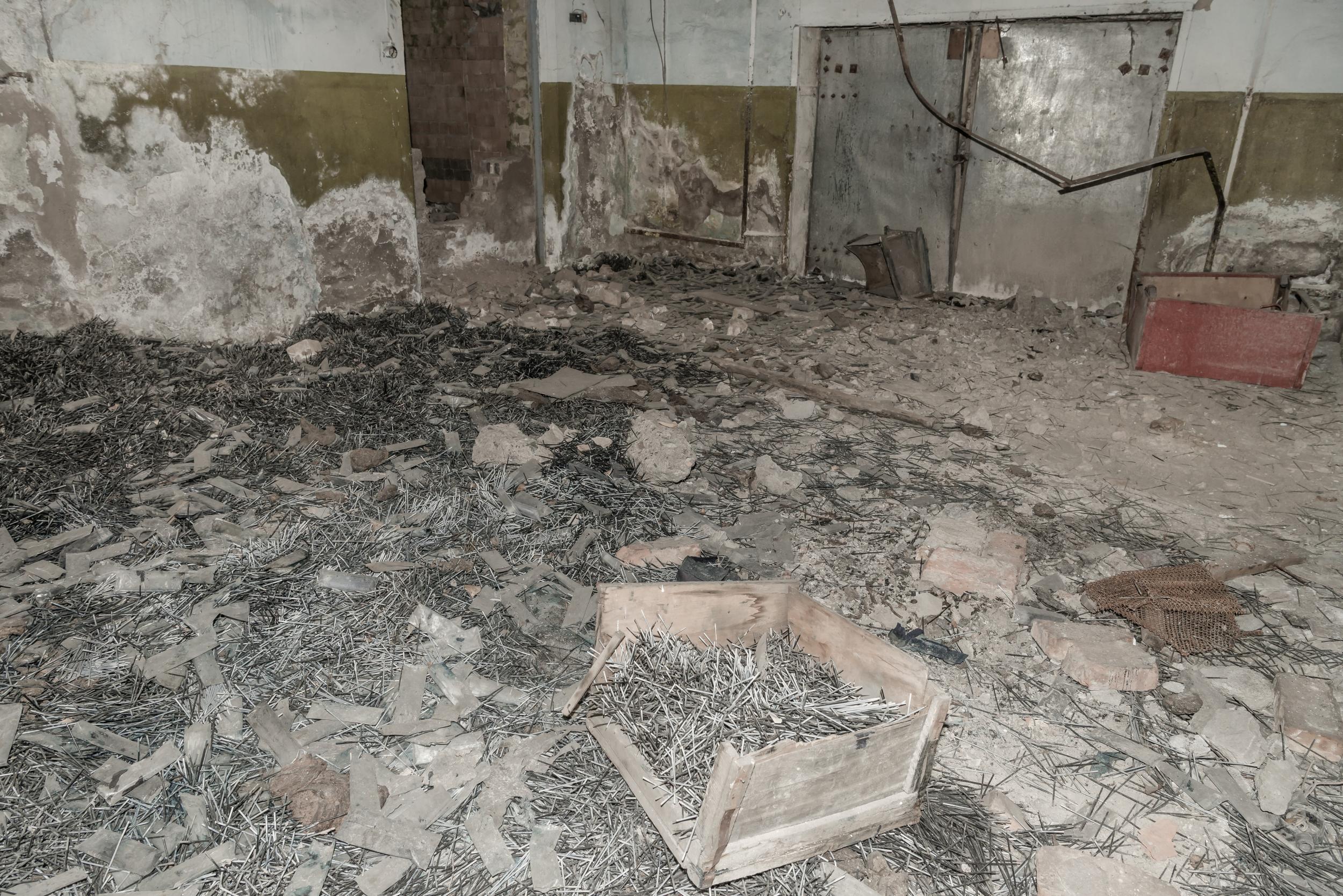
A few minutes’ walk from our guesthouse is the former industrial area of the town, where now only skeletons of factories remain. Roofs have caved in and windows have lost their glass. Written on the facade of one factory is the date 1953, the year the town was built. The clock by which the workers time their shifts fell off long ago.
Inside one derelict building are rusting green machines scattered among the mud and bird droppings. The remains of posters with safety instructions are still on the wall, gas masks lay among the rubble and in another factory thousands of plastic pen parts are spewed all over the floor. We are told that the nibs for these pens were made in St Petersburg, such was the interwoven economic network of the USSR.
Trees and roots weave their way through the ruins and cows and horses graze: keeping livestock is the only way people survive here these days.
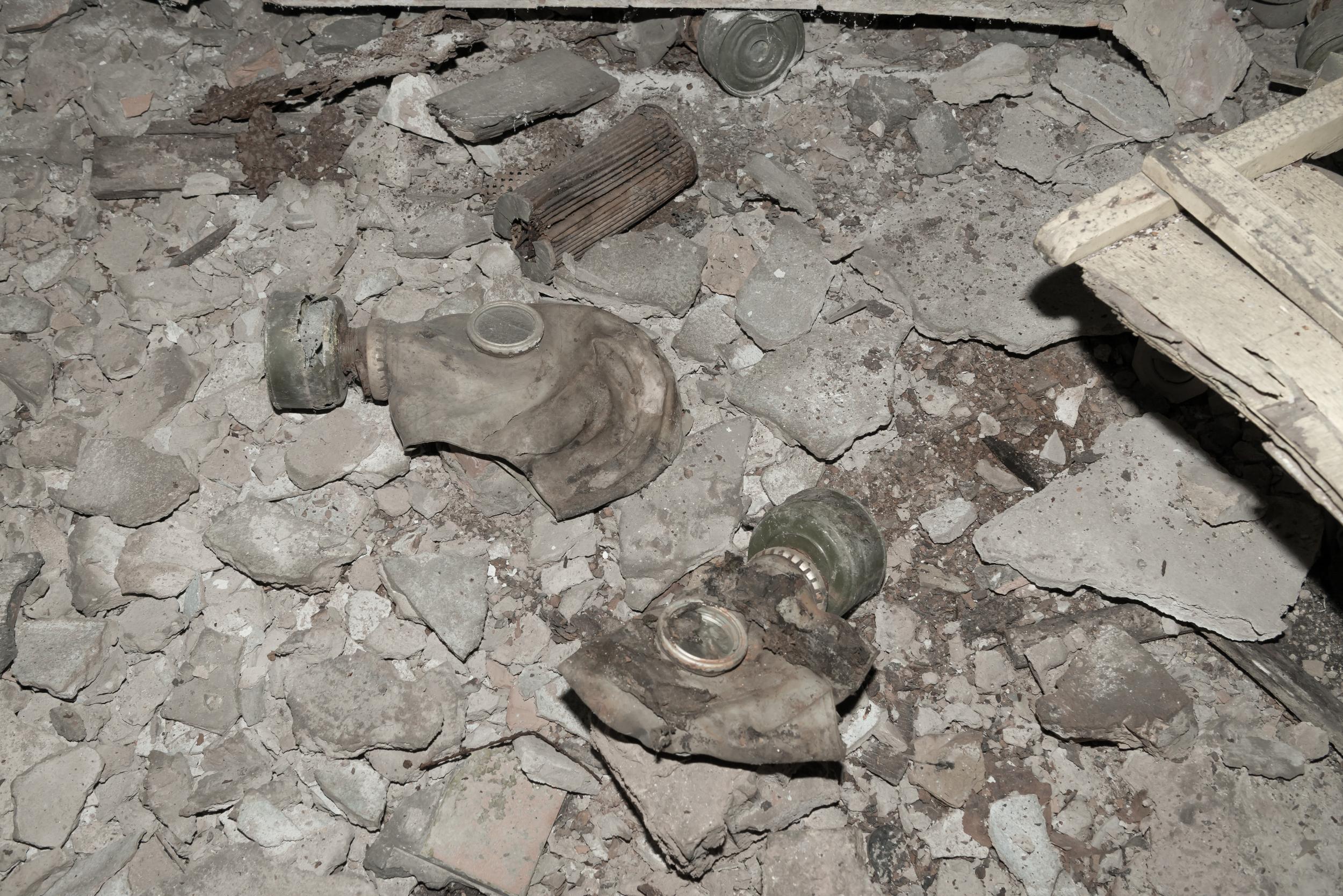
A further 10-minute drive up the mountain track, we approach the second part of town, known as Min Kush 2,260m due to its elevation. Grandmothers sit on benches in the autumn sun while children play football and ride bikes. Rusting Soviet Lada cars, some without wheels, sit outside dilapidated blocks of flats. Nearby is the entrance to the uranium mine that has been roughly blocked off. A red sign warns people away, showing the nuclear symbol beside a skull. A local man tells us that before the mine was properly blocked up, children used to crawl into the tunnels and play - until a child disappeared one day and was never seen again.
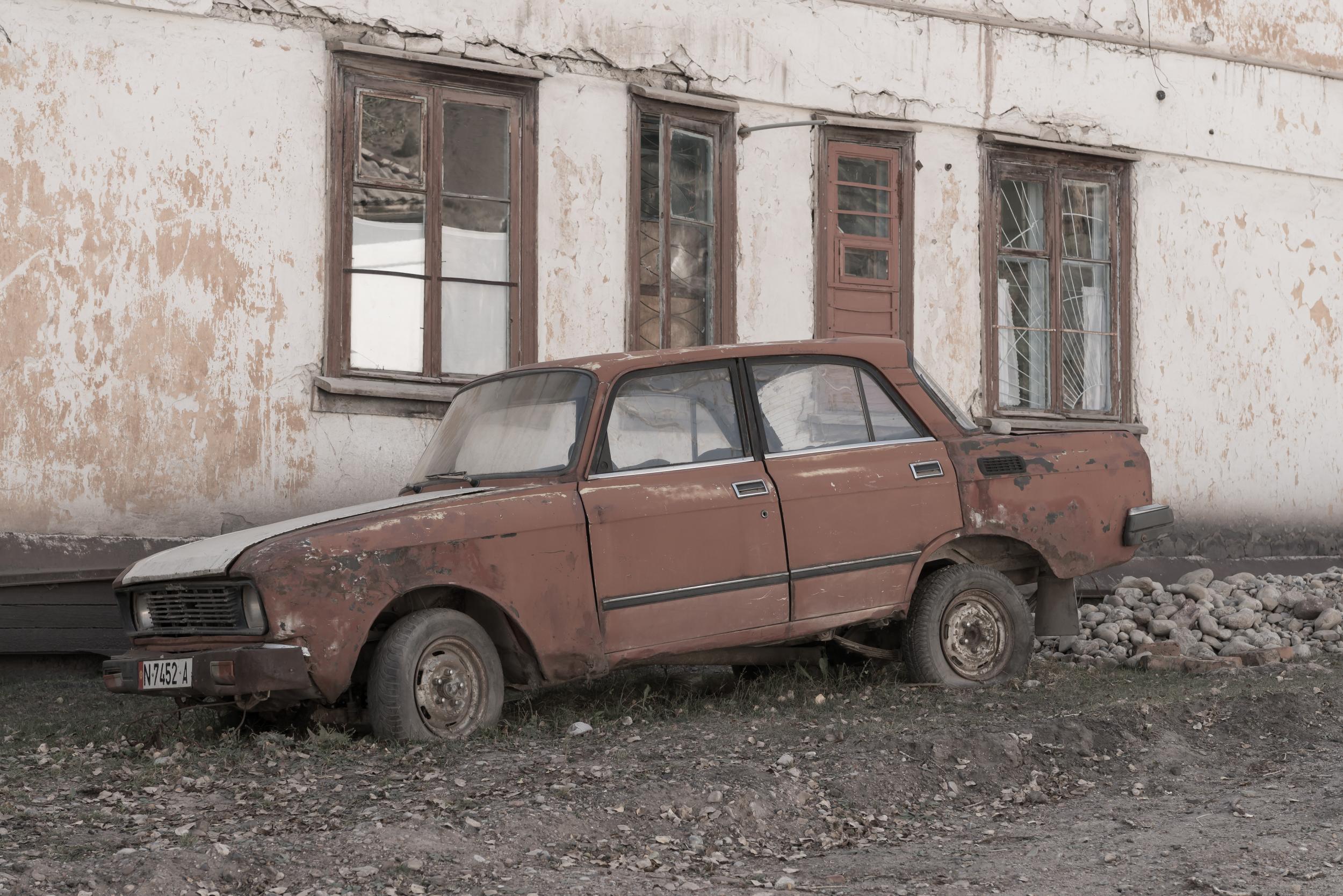
We meet a woman combing sheep wool for weaving outside a small shop that hasn’t changed much since Soviet times. She doesn’t want to be named but tells us that the town has seen the best and worst of times: “Because it was supported by Moscow the shops were full, it was the best place to live. We had everything: juice, biscuits, sweets. I used to bring food from here when visiting my grown up children in Bishkek.”
She survives on a small pension from her time working in the felt tip pen factory. “I’d like to leave but don’t have anywhere to go,” she says.
She adds that she hasn’t felt the effects of uranium on her health but says “some of the younger people complained about feeling ill”.
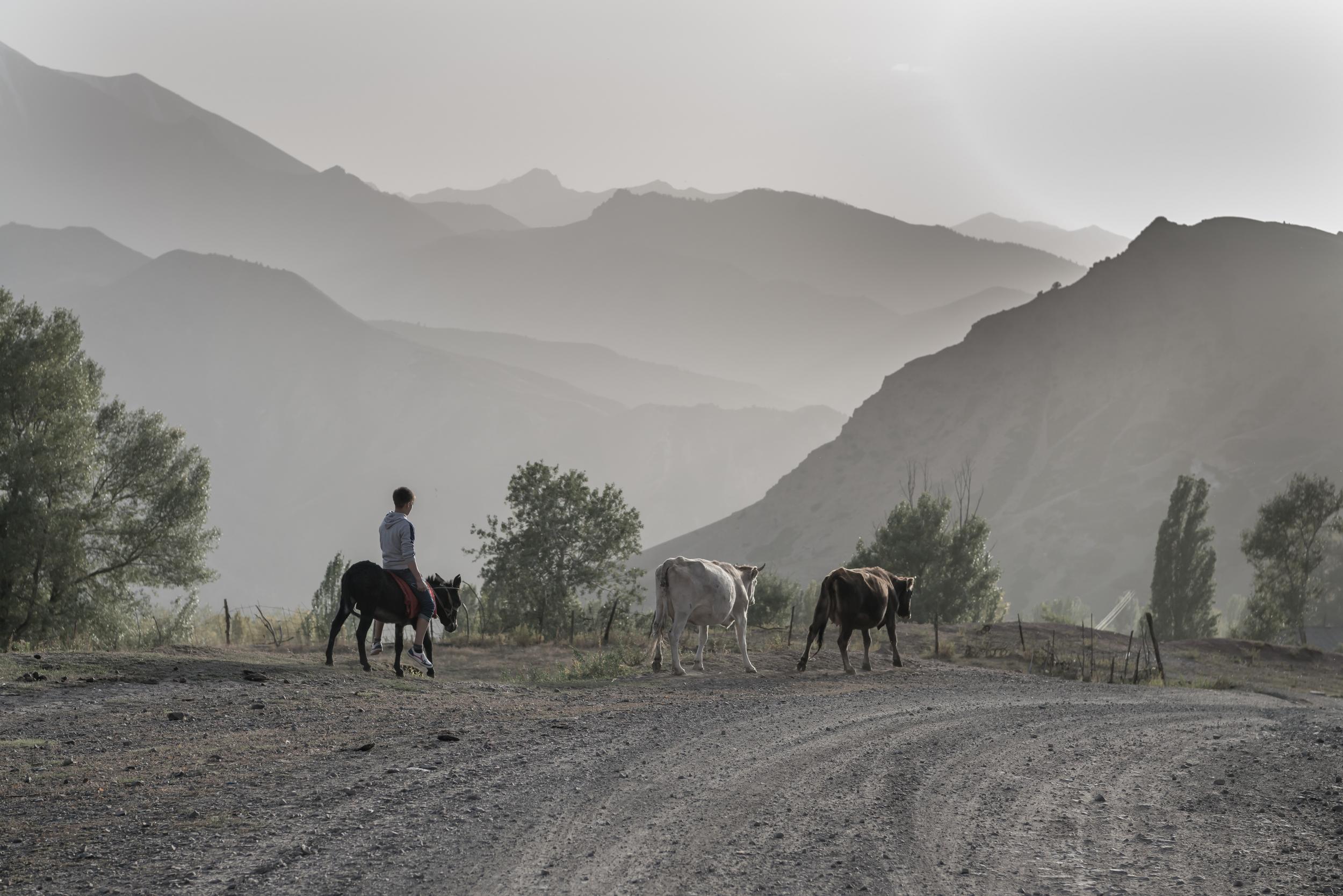
After lunch at the bed and breakfast, we accompany Alec and Gulnara to their dacha, a small cottage, outside the town. After passing the crumbling factories we drive into beautiful countryside, a verdant green valley surrounded by snow-capped mountain peaks. It is a world away from the devastation of Min Kush.
Situated beside a crystal clear river is the dacha, where Alec keeps dozens of bee hives. We sit by the river and feast on honeycomb that Alec has drawn from one of his hives.
Gulnara outlines their plan to bring tourists here and set up yurt camps in the summer months. They have also purchased some of the empty flats in town, which they plan to turn into guesthouses; in the valley they are having a house built.
“My aim is to train local people to be guides and bring employment back to the town,” says Alec.
There are plans to knock down the remains of the factories and, with international help, to remove uranium dumps and clean up the area.
One day Min Kush may be associated with natural beauty and outdoor mountain pursuits such as walking, climbing and white river rafting. But, until then, it represents a shocking legacy of Soviet times.
Travel essentials
Getting there
Turkish Airlines, Pegasus Airlines and Aeroflot fly to Bishkek, with a change in either Istanbul or Moscow. A minibus leaves Bishkek for Min Kush daily at 6am.
Staying there
Bed and breakfast at the guesthouse Kurkuldai, plus an evening meal, is $20 per night. Gulnara and Alec can be contacted on +99 6550544959.
Join our commenting forum
Join thought-provoking conversations, follow other Independent readers and see their replies
Comments